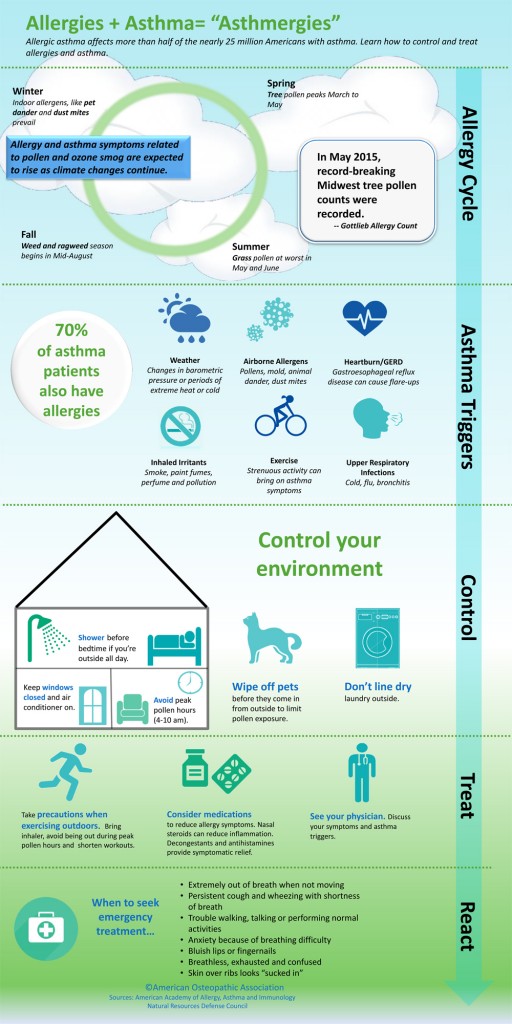Tips for Coping with Allergic Asthma
Over 70% of the 25 million Americans with asthma suffer from allergic asthma.
If you’re one of them, you need to know when your condition calls for emergency treatment.
“The high pollen days can come as a shock to someone who hasn’t had a history of allergies and asthma and can even surprise experienced asthma patients who’ve suddenly developed allergies,” says Pamela Georgeson, DO, allergist and immunologist in Chesterfield Township, Michigan. “We need to work with patients to manage the new or worsening disease so they know when and where to seek treatment.”
Focusing on preventive care, Doctors of Osteopathic Medicine, or DOs, look beyond your symptoms to consider how environmental and lifestyle factors impact your health. They are trained to listen and partner with you to help you not only get healthy, but stay well.
Symptoms of Allergic Asthma
If you have allergies and your symptoms seem more intense than usual, you could be suffering from allergic asthma and should head to the ER. Symptoms include:
- Being out of breath, even when you’re not moving, and feeling exhausted and confused
- Persistent cough and wheezing associated with shortness of breath
- Anxiety because of breathing difficulty
- Bluish lips or fingernails
- Trouble walking, talking or performing normal activities
- The skin over the ribs looks “sucked in”
Tips for Reducing Your Allergy Triggers
Dr. Georgeson recommends that people with any degree of symptoms take some simple steps to reduce the risk of triggering their allergies.
- Avoid exercising outdoors during peak pollen hours (4-10 a.m.)
- Wipe off pets before they come in from outdoors and keep them out of bedrooms to limit pollen exposure
- Shower after being outside for extended periods
- Keep windows closed and air conditioner on, remembering to change the filter every month
- Clean air ducts and vents
- Remove rugs and carpets or vacuum them often
- Don’t hang clothes outside to dry
Take a look at the American Osteopathic Association’s infographic to learn more about managing allergic asthma.

